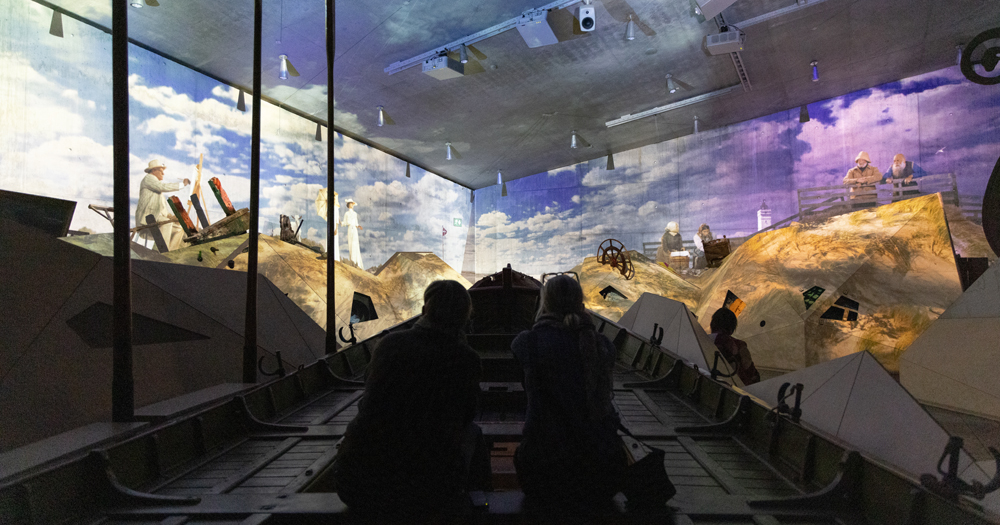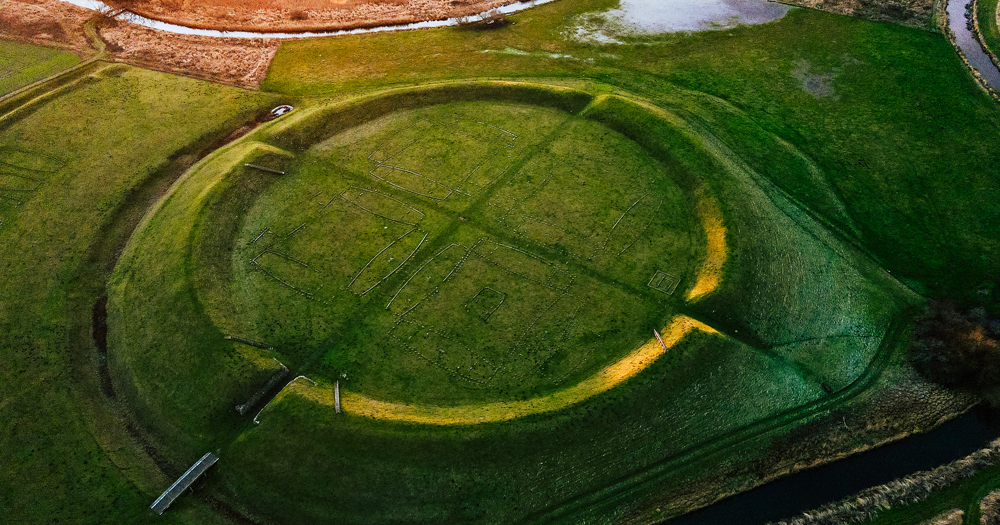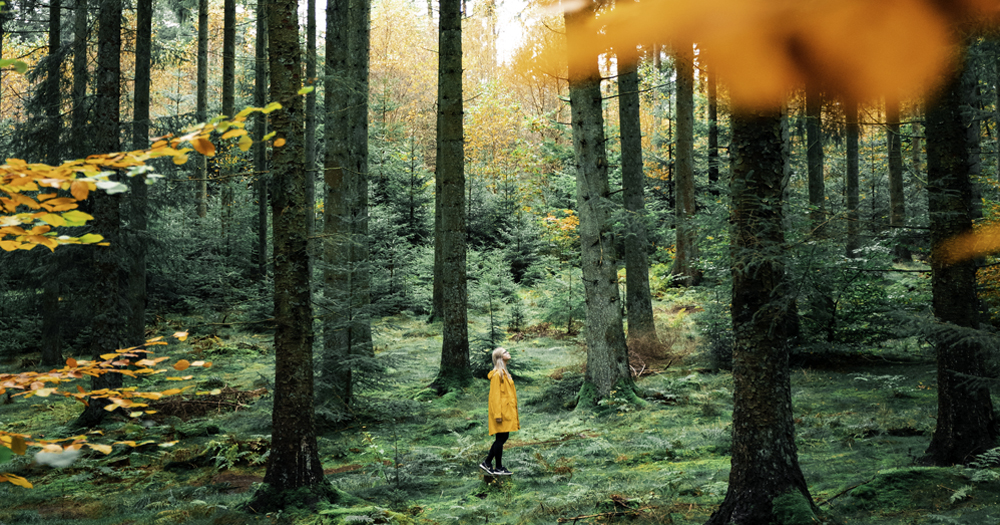Step into Danish history at your own pace
Denmark has a habit of keeping a few secrets up its sleeve. Beyond the castles and postcard-perfect towns lies a quieter, unexpected side of Danish history—hidden bunkers in the dunes, Viking strongholds in the fields, and an ancient road that continues to carry its story. The best part? Visit outside the peak season, and you can have these time-traveling treasures almost to yourself.
Tirpitz Museum: A bunker with stories to tell
On the windswept dunes of the Danish West Coast lies a striking combination of nature and history. Tirpitz Museum, built seamlessly into the landscape near Blåvand, is an architectural gem that leads you underground into the old Tirpitz Bunker. Constructed by the Germans during World War II as part of the vast Atlantic Wall, this colossal gun emplacement was never completed before the war ended. Today, visitors wander through tunnels linking the modern museum to the dark, concrete bunker rooms, where immersive exhibitions shed light on local history. Visiting in the off-season means fewer crowds and more room to play history detective at your own pace.

Viking Ring Fortresses: Stepping into the Viking Age
Denmark’s story is deeply rooted in Viking heritage, a legacy that continues to shape the land today. Viking king Harald Bluetooth (yes, the guy your phone technology is named after) built mighty ring fortresses that still dot the countryside across Denmark. These circular strongholds—Aggersborg on the north side of the Limfjord, Fyrkat near Hobro, Borgring near Køge, Nonnebakken in Odense, and Trelleborg near Slagelse—are among Europe’s most important Viking archaeological sites, inscribed on the UNESCO World Heritage list. Off-season visits bring a special kind of magic: the wind becomes your soundtrack, the earthworks your stage, and you can channel your inner Viking without anyone watching!

Hærvejen: Denmark’s ancient road still calling
For centuries, pilgrims, traders, and nobles traveled along Hærvejen, the “Army Road” that runs the length of Jutland. Today, it’s reborn as a hiking and cycling trail stretching more than 370 miles (600 kilometers) from the German border to northern Denmark. The route winds through forests, heathland, lakes, and villages, while also leading past ancient burial mounds, medieval churches, and historic towns. Take it in the off-season and you’ll meet more grazing cows than fellow travelers. It’s slow travel at its finest: history underfoot, fresh air in your lungs, and perhaps a picnic stop or two along the way.
